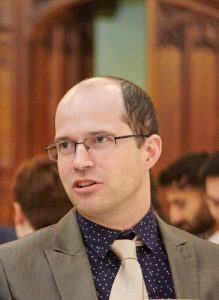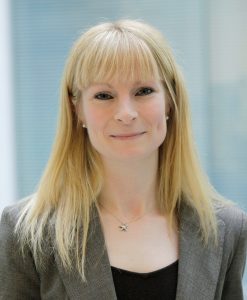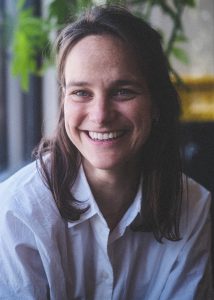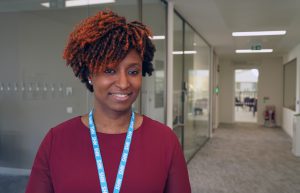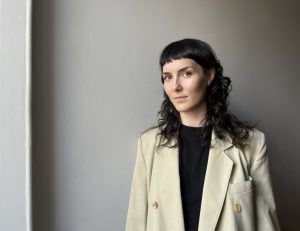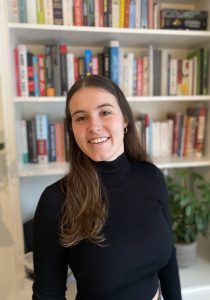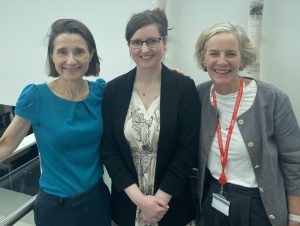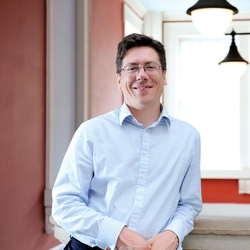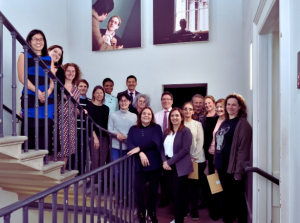Each year the King’s Doctoral College gives out a limited number of awards to celebrate truly outstanding research and theses completed by King’s doctoral students. The prizes are nominated by the external examiners and are judged by a panel consisting of the College’s Director of Research Talent and the Chair of the Research Degrees Examinations Board. There are two rounds, in January and June, and these are the winners from the second round in June 2024.
The winners for this round were:
Dr Alexandra Pugh, Faculty of Arts and Humanities
Thesis title: Boundary Trouble: The Queer-Feminist Aesthetics of Virginie Despentes
I am delighted to have received a King’s Outstanding Thesis Prize. I would like to thank my supervisor, Siobhán McIlvanney, for her encouragement and wisdom; my examiners, Shirley Jordan and Elliot Evans, for nominating me and engaging with my work; and the London Arts & Humanities Partnership, for funding my PhD.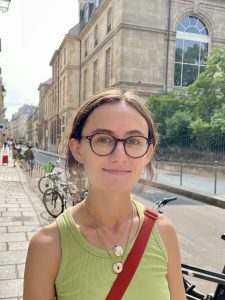
My studies began with a BA in History and Modern Languages (French) at St Hilda’s College, Oxford. After graduating, I spent a year working for charity and campaign organisations, before returning to Oxford to complete an MSt in Women’s Studies. The following year, I began my PhD in the Department of Languages, Literatures and Cultures at King’s. My PhD thesis analyses the aesthetics and politics of the contemporary French writer and filmmaker, Virginie Despentes; it provides close readings of Despentes’s works, while using them to test larger theoretical propositions about the relationship between feminist and queer theory, and politics and art, in the contemporary period. It develops the concept of ‘queer-feminist aesthetics’ as a critical tool and a framework for understanding Despentes’s oeuvre.
During my PhD, I published a number of research articles, chapters, and public-facing review essays, and I spent three months as a visiting research student at the Gender Studies centre (l’Initiative Genre-Philomel) at Sorbonne Université (Paris-IV). After submitting my thesis, I worked as an LSE100 Fellow at the London School of Economics and Political Science. From October 2024, I will be Hamilton Junior Research Fellow in French at the Queen’s College, Oxford, where I will carry out a new, three-year research project on representations of abortion in French literature and film since 2000.
Dr Magnus Jensen, Faculty of Dentistry, Oral and Craniofacial Sciences
Thesis title: Integrated Raman spectroscopy and mass spectrometry for heterospectral tissue imaging

Foto: Lars Moeller
I’m Danish so I started my academic journey in Denmark at the university of southern Denmark (SDU). Here I took an bachelors and master’s in engineering in physics & technology, with a focus on Optics. During my time at the university, I worked several jobs as an instructor, public speaker, and student ambassador. I always enjoyed laboratory work and creating optical systems, so when my master thesis supervisor said he knew of a PhD position opening at King’s I was thrilled.
During my PhD we developed a needle probe device that could provide doctors and surgeons with label-free biochemical information in real time, together with my fantastic supervisor Dr. Mads S. Bergholt, and Boston university. We got a patent for this device, and it’s now being developed into a medical device at King’s. I have now moved back to Denmark, back to my partner my family and friends, but I’m still actively engaging with King’s and my old group. I currently work on creating a spin-out company based on a technology developed by SDU and King’s called Raman Tomography, which we just got published in Nature Comms, to help surgeons assess excised tumors while the patient is still on the operating table. I really enjoy academia, and I want to bring the exciting technology we develop into the “real” world where it can benefit patients and our healthcare systems.
Dr Noemie Alphonse, Faculty of Life Sciences and Medicine
Thesis title: Divergent roles of type I and III IFNs in Shigella and Salmonella infection
I began my education in Biology with a training programme in medical analysis. Following this, I pursued a Bachelor’s degree in Pharmacovigilance. While I enjoyed both experiences, I truly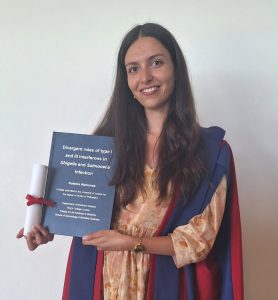 found my passion during my Master’s degree in Immunology in Paris.
found my passion during my Master’s degree in Immunology in Paris.
This led me to King’s College London, where I embarked on my academic journey as a PhD student in Dr. Charlotte Odendall’s lab, in collaboration with Dr. Andreas Wack’s lab at the Francis Crick Institute. There, I focused on studying the functions of interferons in the context of enteric diseases. This research reinforced my interest in innate immunity, and I eagerly shared this passion by networking with other scientists at conferences and participating in mentoring and teaching programmes.
Some of my PhD work on interferons was published in 2022 in Cell, and my research was recognized by the International Cytokine and Interferon Society with the 2023 Sidney & Joan Pestka Graduate Award, achievements that were highly rewarding.
After completing my PhD, I was awarded a one-year French MabImprove LabEx grant, which enabled me to join Dr. Nathalie Heuzé Vourc’h’s team at the Research Centre for Respiratory Diseases (CEPR) in Tours, France. I am currently working there as a postdoctoral researcher, studying antibody-mediated immunity in the lungs in the context of respiratory diseases. Recently, I was awarded the European EMBO postdoctoral fellowship, which will allow me to continue my research in this area.
None of this would have been possible without the unwavering support of my mentors and supervisors, for which I am eternally grateful.
Dr Maria Faleeva, Faculty of Life Sciences and Medicine
Thesis title: The role of SOX9-driven extracellular matrix regulation and LINC complex integrity in vascular ageing
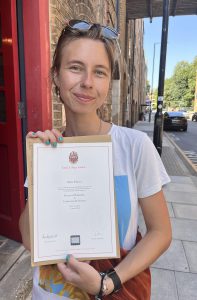 I was awarded a three-year BHF PhD to work in the labs of Prof. Cathy Shanahan and Dr. Susan Cox, focusing on the mechanisms of vascular aging. My research specifically explored the role of Sox9, a crucial protein, in regulating aortic stiffness during aging and cellular senescence.
I was awarded a three-year BHF PhD to work in the labs of Prof. Cathy Shanahan and Dr. Susan Cox, focusing on the mechanisms of vascular aging. My research specifically explored the role of Sox9, a crucial protein, in regulating aortic stiffness during aging and cellular senescence.
Before starting my PhD, I completed a BSc in Biochemistry at the University of St Andrews and an MRes in Biomedical Research at Imperial College. During my undergraduate, I spent my summers working in a variety of labs, gaining experience in fields ranging from structural biology to developmental biology. In my MRes, my projects focussed on signaling pathways in aging stem cells, which fuelled my desire to explore this field further.
Throughout my PhD, I had the privilege of presenting my work both at KCL and internationally. Notably, I was invited to speak at the International Vascular Biology Meeting in San Francisco. Additionally, I developed an app, “Your Lab Partner,” designed to provide early-career researchers with practical tools to assist in the lab. Finally, I was fortunate to have my research published in Circulation Research, a leading journal in cardiovascular research. Though the PhD journey had its challenges, it was everything I hoped for, made possible by the unwavering support of my family, friends, colleagues, and supervisors.
After completing my PhD, I was eager to broaden my research scope beyond cardiovascular biology. I was awarded the Human Frontiers Science Program (HFSP) early-career postdoctoral fellowship to investigate co-transcriptional splicing regulation in Prof. Mark Dawson’s lab in Melbourne, Australia. This fellowship supports researchers who not only move to a different country for their postdoc but also transition to a new field of research. Although the first few months have been challenging—feeling, at times, like the early days of my PhD—it has been an incredibly rewarding experience, and I’m glad I embraced this new opportunity.
You can find out more about what Maria is up to via her LinkedIn profile: https://www.linkedin.com/in/maria-faleeva-a13534195/
Dr Katarzyna Wulfmeier, Faculty of Life Sciences and Medicine
Thesis title: Radiotoxicity of 201Tl and its nanostructure mediated delivery for potential cancer radiotherapy
I am truly honoured to receive the King’s Outstanding Thesis Prize. My PhD research at the Department of Imaging Chemistry and Biology focused on developing novel radiopharmaceuticals for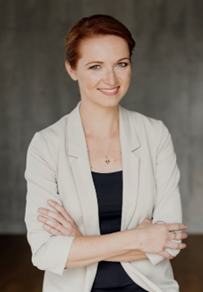 targeted cancer therapies. I began by exploring the potential of radioactive thallium to induce cancer cell toxicity and its subcellular localisation. This work evolved into developing innovative strategies for incorporating thallium-201 into targeted radiopharmaceuticals, including designing organic and inorganic carriers, such as Prussian blue nanoparticles, to effectively bind and deliver radioactive thallium.
targeted cancer therapies. I began by exploring the potential of radioactive thallium to induce cancer cell toxicity and its subcellular localisation. This work evolved into developing innovative strategies for incorporating thallium-201 into targeted radiopharmaceuticals, including designing organic and inorganic carriers, such as Prussian blue nanoparticles, to effectively bind and deliver radioactive thallium.
Prior to my PhD, I obtained a Master of Pharmacy degree from the Medical University of Warsaw, Poland. After becoming a registered pharmacist, I gained valuable experience in community and hospital pharmacies in the UK, with a particular focus on oncology care and anticancer medication management. This exposure to advanced cancer therapies inspired me to transition into research, blending clinical practice with scientific discovery.
Currently, I am a Postdoctoral Research Associate in Cell Radiobiology at King’s College London. In collaboration with the Facility for Spatially Resolved Single and Sub-cellular Omics (SEISMIC) at the University of Surrey, my work explores the subcellular distribution of metals in single cancer cells using innovative nanocapillary techniques.
I am grateful to my PhD supervisors, Prof Phil Blower and Dr Vincenzo Abbate, for their guidance and support throughout my doctoral studies, and to my examiners for their nomination. Furthermore, I would like to thank my collaborators at the Universities of Surrey, Warwick, and Toronto.
If you would like to find out more about my research, you can find me on LinkedIn: www.linkedin.com/in/katarzyna-w-b36539146
Dr Delia Bisharah, Institute of Psychology, Psychiatry and Neuroscience
Thesis title: Anticholinergics, antipsychotics and associated risks in dementia: seeking to improve the safety of prescribing
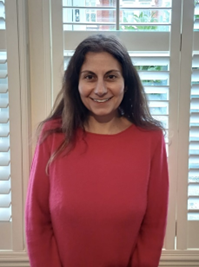 It’s such an honour to receive an outstanding thesis award from King’s. I am very grateful to my examiners Professor Tom Dening and Dr Denise Taylor who showed such interest and enthusiasm for my thesis. My heartfelt thanks also goes to my supervisors, Professor Rob Stewart and Professor David Taylor for giving me this opportunity with unwavering support.
It’s such an honour to receive an outstanding thesis award from King’s. I am very grateful to my examiners Professor Tom Dening and Dr Denise Taylor who showed such interest and enthusiasm for my thesis. My heartfelt thanks also goes to my supervisors, Professor Rob Stewart and Professor David Taylor for giving me this opportunity with unwavering support.
I am a consultant pharmacist in the Mental Health of Older adults at SLaM and specialise in dementia. I work part-time and studied for my PhD mostly on 1 day/week basis. My thesis focussed on exploring ways to improve the safety of prescribing in people with dementia. Evidence shows that long-term use of anticholinergics is associated with an increased risk of cognitive decline, dementia and mortality. I investigated the effect of anticholinergic burden of drugs on dementia outcomes and found that drugs with a high Anticholinergic Effect on Cognition (AEC) score were associated with increased mortality and hospitalisation compared to those with low scores. When I compared bladder anticholinergics in people with dementia, those with high AEC scores (e.g. oxybutynin) were associated with significantly increased mortality, by 55% compared to those with low AEC scores. My research had some implications on policy and practice. It was used as evidence when the MHRA were considering changing the bladder drug oxybutynin from a “Prescription Only Drug” (POD) to an “Over the Counter” (OTC) product that you can buy. Following consultation and review of the evidence, the MHRA decided that oxybutynin would continue to require a prescription to ensure its safe use. I also led on the development of Medichec, a desktop and phone app that helps to identify drugs that have a high central anticholinergic burden and those reported to cause QTc prolongation, hyponatraemia, bleeding risk, dizziness, drowsiness and constipation. Medichec can facilitate access to side-effects information for multiple medications at once, aid clinical decision-making and optimise treatment.
Following on from my PhD, I continue to work in research and develop my skills and am in the process of applying for an NIHR skills enhancement award whilst working as a consultant pharmacist.
Dr Daulet Sharipov, Institute of Psychology, Psychiatry and Neuroscience
I am truly honoured to receive this award. My heartfelt thanks go to everyone involved in this recognition. I feel fortunate to be supported by so many wonderful people who made my doctoral research possible.
I began my medical education at Kazakh National Medical University in Almaty, Kazakhstan, where I earned my Doctor of Medicine degree. It was during this time that I developed a keen interest in the human brain, it’s structure and function in health and disease. This passion grew through my internship rotation in neurosurgery and as part of a research team investigating biomarkers for Parkinson’s Disease, steering my focus toward neuroscience, particularly neurodegenerative diseases.
During this pivotal time, I connected with Dr Frank Hirth, who welcomed me into his lab for my doctoral research. With his support, I secured a PhD Fellowship to conduct my research at King’s College London (KCL). Frank’s sincere support was instrumental to advance in my research. I am lucky to have had not just one but three supervisors. Huge thanks for support and guidance to Prof Dag Aarsland and Dr Tibor Hortobagyi. I am profoundly grateful to them for their invaluable mentorship and support.
In addition to my research, I have had the privilege of serving as Co-chair of the Neuroscience Symposium (2022) and as a Student Representative for the School of Neuroscience (2022-2024). I was honoured to present my work at national and international conferences including the annual Society for Neuroscience in the USA, AD/PD in Sweden, MDS in Denmark, and the Neuropathology Congress in Germany. I have also been invited to present my research at Columbia University (New York City), Karolinska Institutet (Stockholm), and the University of California (San Francisco).
Currently, I am a Postdoctoral Researcher in Per Svenningsson’s lab at the Karolinska Institutet, and a Visiting Research Fellow in Frank Hirth’s lab at KCL. My research continues to focus on neurodegeneration, exploring new blood biomarkers and pharmaceutical targets to find a lasting treatment for Parkinson’s Disease and Lewy Body Dementia.
Please do not hastate to reach me via email daulet.sharipov@ki.se and/or daulet.1.sharipov@kcl.ac.uk or LinkedIn account www.linkedin.com/in/daulet-sharipov
Dr Kfir Cohen, Faculty of Natural, Mathematical and Engineering Sciences
Thesis title: Reliable Machine Learning for Communication Systems: Tools and Applications
I am honoured to receive the Outstanding Thesis Prize for my PhD research. In my thesis “Reliable Machine Learning for Communication Systems: Tools and Applications” I proposed methods with enhanced trustworthiness in the regime of limited amount of labelled data, which characterises communication problems, for training purposes. These methods range from an applicative integration of meta-learning, Bayesian learning, and active learning, to a theoretical cross-validation extension of conformal risk control, with the latter providing mathematical guarantees. Using these tools, I have shown how communication models can be well-calibrated, in the sense their confidence levels regarding predictions are well-fitted, beyond accuracy. The research outcome was spread among prestigious publications in top-tier and peer-reviewed journals and conferences.
I had the honour to be supervised by professor Osvaldo Simeone in the Engineering Department, who had a pivotal role in my PhD. Beyond introducing this field of study, his exceptional guidance had pushed me forward to achieve many of the goals set for this work. Being a member of the King’s Communications, Learning and Information Processing Laboratory (KCLIP) he heads, meant being surrounded by gifted group members and gave me access to brilliant global collaborators outside the university. I am grateful for the financial support of the European Research Council (ERC) and KCL Centre for Doctoral Studies that made my studies possible.
Prior to KCL, I have received BSc (summa cum laude) and MSc degrees from the Faculty of Electrical Engineering, Technion — Israel Institute for Technology. I have gained real-world industry experience as a Communication Signal Processing Engineer. Nowadays, I am about to start a new R&D position in the industry and hopefully implement state-of-the-art schemes I have been exposed to during my years of study.
Kfir M Cohen google scholar
Dr Ling Wang, Faculty of Nursing, Midwifery, and Palliative Care
Thesis title: Prepare Chinese Healthcare Workers Cultural Adaptation and Feasibility Evaluation of Psychological First Aid Training Intervention to Manage Trauma and Stress in Front-line Care Settings
I am honoured and deeply grateful to receive this award, which would not have been possible without the extraordinary support and encouragement from those around me, including the brilliance, patience, and guidance of my supervisors, Dr Mary Leamy, and Prof. Ian Norman, instrumental in bringing my ideas to fruition. I am especially indebted to my Chinese colleagues, with
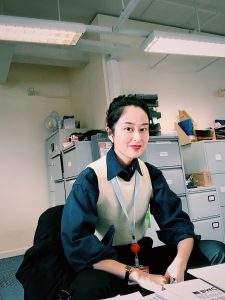
whom it has been a privilege to grow up and to my mentors in Xiangya who profoundly shaped my career path and academic journey.
My thesis explores the application of Psychological First Aid (PFA) beyond disasters into routine care, resulting in novel cultural and contextual understandings of how PFA could be integrated into clinical healthcare benefiting patient care as well as workforce wellbeing. Central to this work is a combination of cultural adaptation with implementation science methodologies applied to prepare healthcare workers to manage trauma exposure on the frontline. Supported by the National Psychological Branch of Disaster and Emergency Rescue Medicine, the research involved extensive public engagement and produced substantial outputs, including academic publications, national guidelines, a whole set of blended training programme material and particularly a series of clinical case studies shared through clinicians’ reflections.
With a background in clinical care and experience working with the regional government on emergency response, alongside six years of academic training in public mental health, I seek to mitigate the absence of mental health and psychosocial care on the ground. After completing my PhD, I currently work as a research fellow with colleagues from the UK public health rapid response team and global mental health centre at the London School of Hygiene and Tropical Medicine to close the evidence-to-practice gap in integrating physical and mental health care across frontline, community, and primary care settings globally.
Dr Thornachanok Uerpairojkit, Faculty of Social Sciences and Public Policy
Thesis title: The deprofessionalisation of teachers in Thailand’s education reform
I am honoured to have been awarded an Outstanding Thesis Prize for my PhD in Education Policy. I am very grateful to my examiners, Prof. David Hall and Prof. Nelli Piattoeva, for nominating me for this award, and to my supervisors, Prof. Sharon Gewirtz, Dr. Diego Santori and Dr. Eleanor Gurney, for their scholarly guidance and unwavering support throughout my doctoral journey. I am also very thankful to King’s Centre for Doctoral Studies; my PhD would not have been possible without their generous support via the PGR International Scholarship.
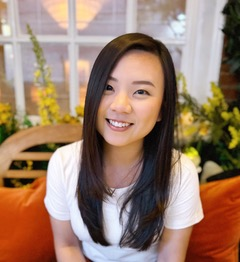 My PhD was a continuation of my long journey to understanding the issues and complexities surrounding the education reform of my home country, Thailand. Working towards my BA in Social Sciences at Durham University, I explored the similarities and differences between Thailand’s education reform and policies borrowed from ‘the West’. For my MA in Policy Studies in Education from UCL Institute of Education, I further investigated this through looking at ‘gaps’ between envisioned policy and enacted practice, particularly how they were experienced by teachers. Afterwards, as a lecturer at the Faculty of Learning Sciences and Education, Thammasat University, I became inspired to utilise the explanatory power of research in making sense of highly complex social phenomena, and that led me to embark on my PhD journey.
My PhD was a continuation of my long journey to understanding the issues and complexities surrounding the education reform of my home country, Thailand. Working towards my BA in Social Sciences at Durham University, I explored the similarities and differences between Thailand’s education reform and policies borrowed from ‘the West’. For my MA in Policy Studies in Education from UCL Institute of Education, I further investigated this through looking at ‘gaps’ between envisioned policy and enacted practice, particularly how they were experienced by teachers. Afterwards, as a lecturer at the Faculty of Learning Sciences and Education, Thammasat University, I became inspired to utilise the explanatory power of research in making sense of highly complex social phenomena, and that led me to embark on my PhD journey.
My thesis, titled ‘The deprofessionalisation of teachers in Thailand’s education reform’, was an attempt to provide a holistic, in-depth and contextually grounded understanding of how teachers have increasingly experienced professional disempowerment over the course of the country’s three-decade education reform. Based on in-depth interviews with teachers as well as policy actors, the thesis examined eight distinct but interrelated ways that teachers experience deprofessionalisation, and identified five major ‘clusters’ of system-level mechanisms that self-reinforce and work in tandem to produce these individual-level experiences. The thesis also offered methodological insights into navigating cultural logics informing research processes, as well as theoretical contributions in alternative understandings of teacher professionalism and neoliberal education reform.
Some of the findings from my thesis have already been published as a book chapter, and I am working towards further publications in academic journals as well as other mediums. Since completing my PhD, I have also been fortunate enough to continue working with one of my supervisors, Dr. Diego Santori, on a KCL-funded study that pilots a novel method in critical education research.
Social media: LinkedIn, ResearchGate
Other winners:
Dr Luke Jelen, Institute of Psychology, Psychiatry and Neuroscience











